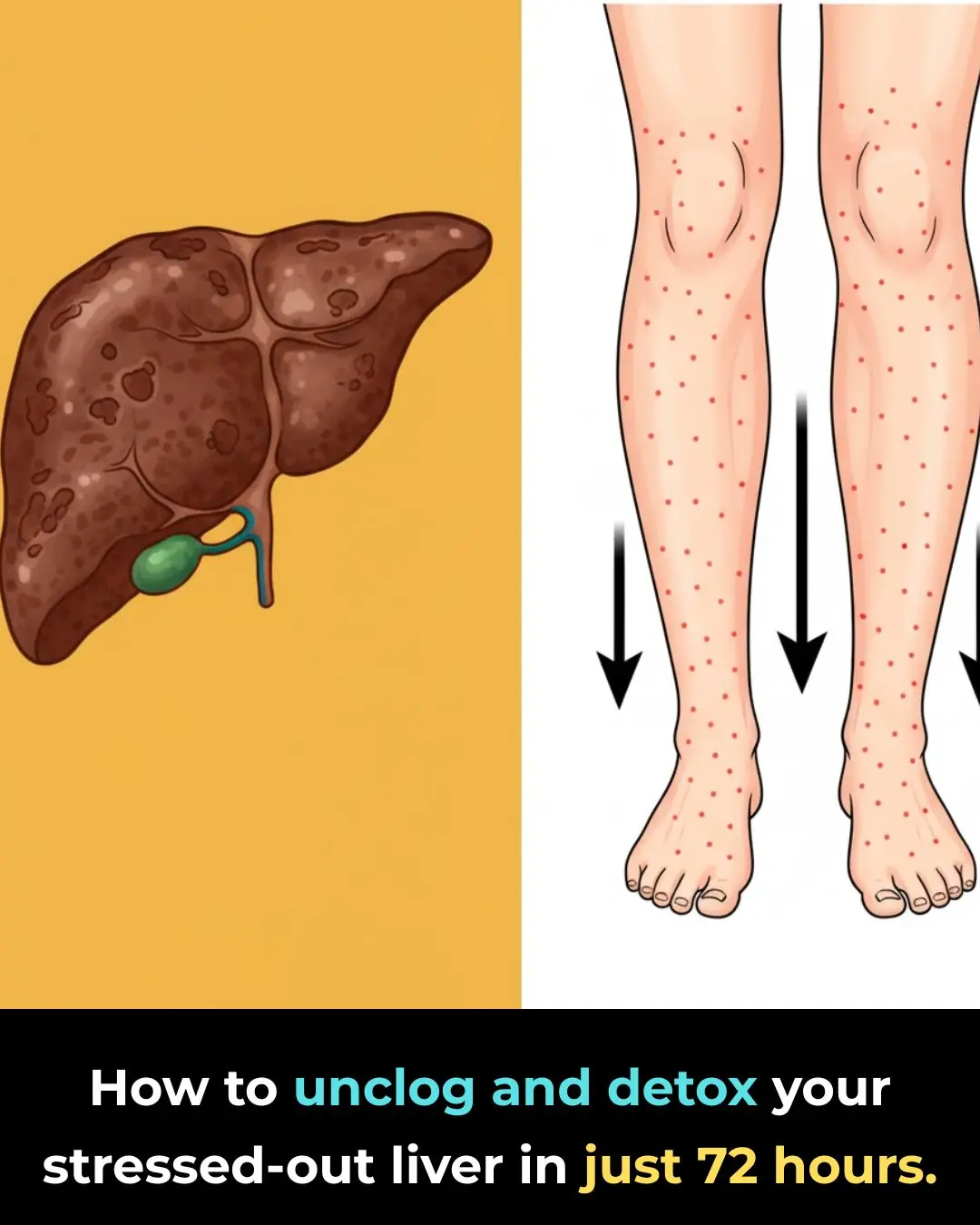
Throat problems may be warning you about hidden blood pressure issues, study finds

Have you ever struggled with a lingering cough, a scratchy throat, or the constant sensation of a lump that just won’t go away? Most people brush these signs aside as minor annoyances. But groundbreaking research from the University of Southampton suggests that these seemingly harmless symptoms may be connected to something far more serious: your blood pressure.
A new study has uncovered an unexpected link between chronic throat irritation and difficulties maintaining stable blood pressure. The issue appears to involve the baroreflex, the body’s built-in mechanism for keeping blood pressure balanced. When the baroreflex becomes compromised, the entire cardiovascular system can be affected—sometimes without you realizing it.
Key Takeaways
• The Connection
A new study reveals that persistent throat problems are associated with weakened blood pressure regulation, suggesting a deeper physiological interaction than previously known.
• The Culprit
The vagus nerve, which oversees both throat protection and blood pressure stability, may become overloaded. When it shifts its focus toward defending the airway, it may have fewer resources to manage blood pressure.
• The Risks
Poorly controlled blood pressure increases long-term risks for heart attacks, strokes, fainting episodes, and other cardiovascular complications.
• Common Causes of Throat Issues
Chronic throat symptoms may stem from:
-
Acid reflux or silent reflux
-
Inflammation from allergies
-
Post-viral irritation (common after COVID-19)
-
Nerve hypersensitivity or irritation
Your Body’s Multitasking Super-Nerve
At the heart of these findings is the vagus nerve—one of the most important nerves in your entire body. As part of the autonomic nervous system, it regulates essential, automatic functions like:
-
Breathing
-
Digestion
-
Heart rhythm
-
Swallowing
-
Blood pressure balance
The vagus nerve runs from your brainstem down through your neck and into your chest and abdomen. One of its most critical jobs is controlling the baroreflex, a safety system that prevents your blood pressure from dropping too low when you stand up, move suddenly, or experience stress.
According to study author Professor Reza Nouraei, the vagus nerve also has to ensure that your airway remains protected whenever you swallow. “Our survival depends on the throat separating air and food passages,” he explains.
When the throat becomes irritated—due to acid reflux, coughing, post-viral inflammation, or even repeated throat clearing—the vagus nerve increases its activity to guard the airway. The study suggests that this heightened focus may divert neural resources away from blood pressure regulation, reducing its ability to keep the cardiovascular system stable.
What the Study Revealed
To explore this link, researchers examined two groups:
-
23 patients with chronic throat symptoms
-
30 patients with digestive issues related mainly to the stomach and esophagus
Even though both groups experienced acid reflux, their autonomic responses differed significantly.
Patients with throat-related symptoms showed:
-
Higher resting heart rates
-
Lower overall blood pressure
-
Markedly reduced baroreflex sensitivity
In other words, their bodies struggled to make the quick adjustments needed to maintain stable blood pressure. The researchers described this state as “autonomic distress,” meaning the nervous system was under pressure and unable to maintain balance.
The control group did not display the same patterns, suggesting that the throat-specific symptoms—not reflux alone—were strongly linked to reduced baroreflex function.
Why This Matters for Your Heart Health
With the rise of long-lasting coughs, sore throats, and voice changes following viral infections like COVID-19, these findings carry significant relevance today. Professor Nouraei notes that such symptoms may signal that the vagus nerve is overstressed and unable to keep up with its multiple tasks.
When the baroreflex doesn’t function properly:
-
The heart cannot adjust effectively during movement
-
Blood vessels respond more slowly to pressure changes
-
Sudden drops or spikes in blood pressure become more likely
-
The cardiovascular system endures extra strain over time
This increased workload may raise the risk of serious events such as hypertension spikes, fainting, arrhythmias, heart attacks, and strokes. What begins as throat irritation could ultimately affect multiple organs.
A New, More Holistic Approach to Health
This research suggests that persistent throat symptoms may not simply be a nuisance—they could be a sign of broader physiological imbalance. It highlights the need to view symptoms through a whole-body lens, recognizing that issues in one system can ripple across others.
Professor Nouraei explains, “If throat problems are consuming the vagus nerve’s resources, treating those symptoms may help restore healthier nerve function throughout the body.” Improving throat health could, therefore, contribute to better blood pressure control and improved overall autonomic stability.
The research team plans further investigations to determine whether addressing throat irritation—such as through reflux treatment, nerve-calming therapies, or inflammatory control—can actually improve baroreflex sensitivity and cardiovascular regulation.
What This Means for You
If you’re experiencing any of the following symptoms for more than a few weeks, it may be worth discussing them with your doctor:
-
A persistent cough
-
A sensation of a lump in your throat (globus)
-
Frequent throat clearing
-
Hoarseness or voice changes
-
Throat tightness or irritation
Not only could treating these issues improve your comfort, but based on this new research, it may also support your long-term heart health.
News in the same category


Drink one cup daily of this juice to UNCLOG arteries?

Don’t ignore your legs: the surprising early signs of pancreatic cancer

9 cancer warning signs your body is sending you (don’t ignore these!)

Texas reports 4× surge in whooping cough cases — health officials issue statewide alert

Top 10 signs of a BLOOD CLOT in your leg (prevent Deep Vein Thrombosis)

Say Goodbye to Parasites, Cholesterol, High Blood Pressure, and Poor Circulation With This 7-Day Homemade Drink

Drink This 2X a Day to Remove Uric Acid Before it Crystallizes in Your Joints and Becomes Painful

Lower blood sugar naturally by training just 2 leg muscles

3 Food Combo to Strengthen Your Heart

What Your Belly Is Trying to Tell You

1/4 teaspoon reverses gut inflammation & cleanses liver toxins

Vitamin D3 cuts second heart attack risk by half

One Month Before A Heart Attack, Your Body Will Warn You Of These 7 Signs

4 vitamins to reverse neuropathy and damaged nerves – relieve foot & hand pain fast!

1st death linked to “meat allergy” spread by ticks, doctors confirm

Ignite Your Day: Eggs + Coffee for Unstoppable Stamina & Vitality

How to Effectively Remove a Painful Ingrown Toenail WITHOUT Having To Go To The Doctor

This Is What Happens To Your Lungs When You Dry Laundry Indoors
News Post

How To Unclog And Detox Your Stressed-Out Liver In Just 72 Hours

Why should you drop a clove of garlic into the toilet at night?

4 ways to boil chicken without water

5 Best Collagen Toners For Wrinkle Free Glowing Skin

Rice water is like gold in the house if you know how to use it for these things

7 Days Indian Glass Skin Challenge

I Just Discovered the Benefits of Hanging a Bottle Cap on a Keychain

4 Dangerous Mistakes When Using an Air Fryer: Risks of Food Poisoning, Cancer, and Fires

Coffee Baby Oil Vitamin E Formula: Collagen Cream For Wrinkle Free Glowing Skin

Lady places cup of vinegar into microwave. Here’s the genius reason why

I had no idea this was a thing

6 ways to use wind oil to help repel mosquitoes extremely well

10 odd home fixes you’ll wish you learned years ago

12 weird but genius ways to unclog things naturally

Put borax on wax paper and slide it under fridge. Here's why

How to Grow Cucumbers in Pots for Heavy Harvests All Season Long

How to make steamed pears with rock sugar is both delicious and nutritious
Let’s take a look at some tips to help keep your kitchen space clean and free of unpleasant odors.

Drinking Roasted Black Bean and Ginger Tea for 7 Days Brings 3 Major Health Benefits
